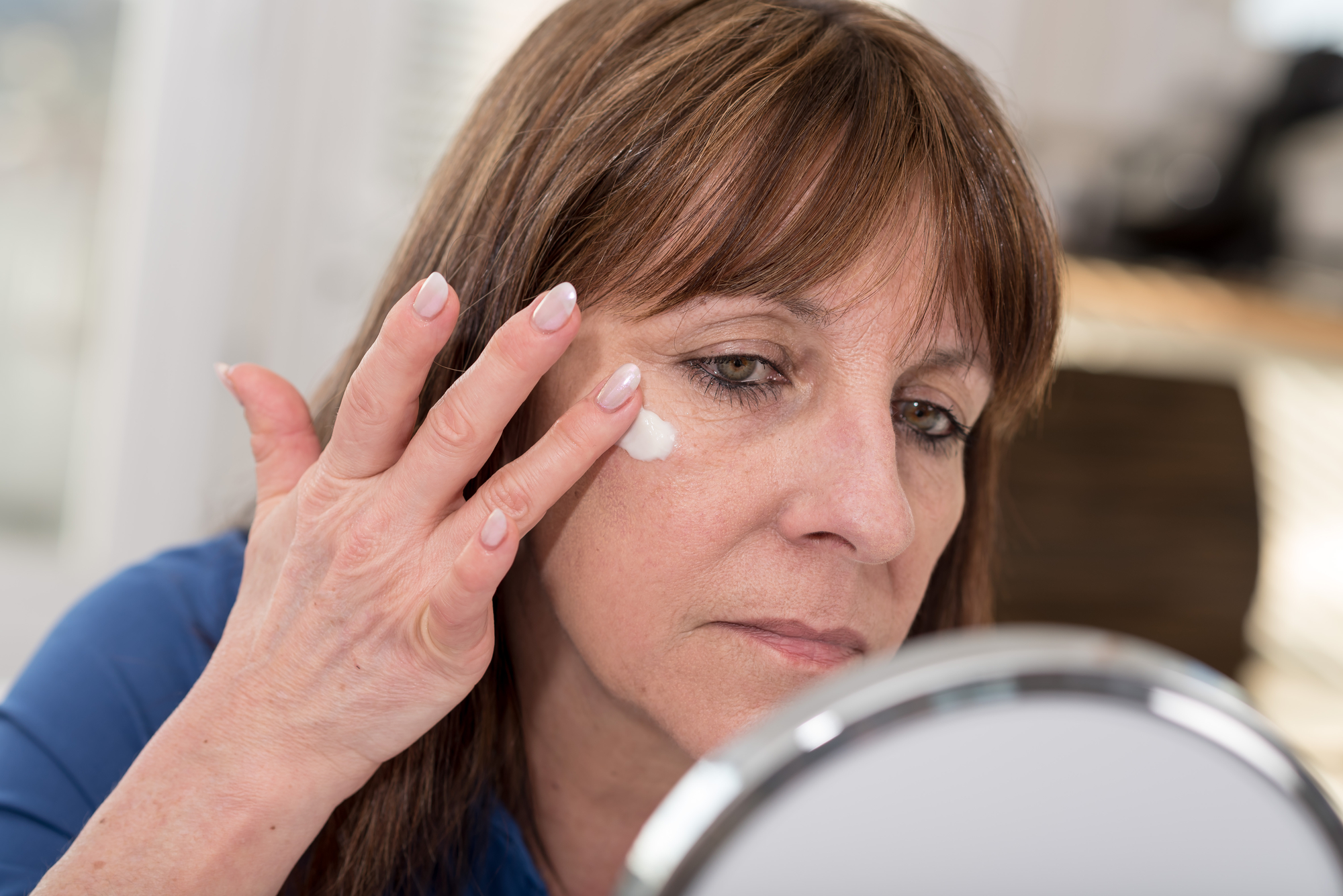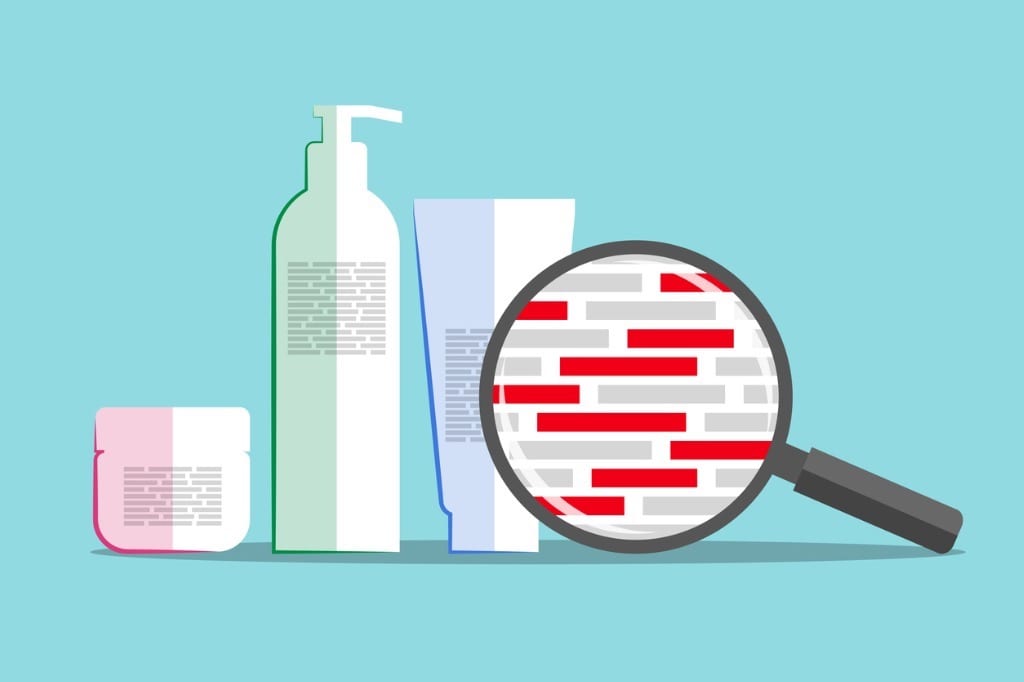I’m often asked what I think of “anti-wrinkle” products, most importantly, those that contain retinoids, which are vitamin A derivatives that promise the “Fountain of Youth” in a jar. The answer I give to patients is never a sexy one and almost never the answer the consumer wants to hear. I base this answer on three things:
- Scientific literature;
- Thirty years of experience as a board-certified dermatologist and;
- As a consumer who has personally tried most topical retinoid creams for extended periods of time
Vitamin A and its derivatives
Vitamin A and its derivatives (retinoids) are the most prevalent anti-aging ingredients on the market today. Tretinoin, a retinoid approved by the Food and Drug Administration (FDA), is only available by prescription. And although there is ample scientific evidence that shows the ability of retinoids to have a positive effect on cell gene rearrangements, fibroblast activity, and collagen synthesis, studies proving cosmetic benefits with statistical significance are lacking.
One of the biggest bombshells is in the package insert for Renova, an FDA approved tretinoin cream used for the “mitigation of fine facial wrinkles in patients who use comprehensive skin care and sunlight avoidance programs”. The package insert clearly states “RENOVA® (tretinoin cream) 0.02% DOES NOT ELIMINATE WRINKLES, REPAIR SUN-DAMAGED SKIN, REVERSE PHOTOAGING, or RESTORE MORE YOUTHFUL or YOUNGER SKIN.”
The company submitted data to the FDA from five clinical trials, which revealed moderate improvement in fine wrinkling in only 29 of 279 participants who applied tretinoin and sunscreen (compared with 3% in the control group, which used comprehensive sun protection only). Of those that used sun protection and tretinoin, 76% saw minimal improvement, no change or even worsened (compared to 88% of the control group). All individuals within these five clinical trials had lighter skin types (Fitzpatrick Skin Types I – III.) A single study of 107 darkly pigmented subjects (Fitzpatrick Skin Types IV-VI) performed even worse. Of subjects who only used comprehensive sun protection, 49% demonstrated minimal or mild improvement in fine facial wrinkling. When compared to subjects who applied tretinoin and sunscreen only 29% showed improvement;
this means that sun protection alone demonstrated better results than the wrinkle cream, by almost double.
A second retinoid, tazarotene, also FDA approved as an “adjunctive agent for the use in the mitigation of facial fine wrinkling….in patients who use comprehensive skin care and sunlight avoidance programs” clearly states on the package insert:
- AVAGE Cream does not eliminate or prevent wrinkles or restore more youthful skin.
- AVAGE Cream does not reverse photoaging or repair sun-damaged skin;
- AVAGE Cream does not mitigate coarse or deep wrinkling, tactile roughness, telangiectasia, skin laxity, keratinocytic atypia, melanocytic atypia, or dermal elastosis.
Of the 1131 subjects within the randomized vehicle-clinical trials for tazarotene, 97% were white. Subjects with darker Fitzpatrick Skin Types V and VI were not studied, which results in an inadequate determination of efficacy of the product to darker skin types. Within two trials submitted, a slight improvement in fine wrinkling was seen in 5% and 13%, respectively of both trials. All others had minimal improvement, no change or got worse.
In addition to a lack of results, users of prescription retinoids often experience adverse side effects. Burning and stinging of the skin, redness, peeling, and severe dryness are common complaints. Although many of these symptoms may resolve over weeks to months of use, some individuals experience persistent irritation and inflammation from topical retinoids.
Weaker derivatives of retinoic acid, such as the vitamin alcohol (retinol), vitamin A esters (retinyl palmitate, retinyl acetate), and vitamin A aldehyde (retinal), are commonly found in over-the-counter (OTC) skin care products.
Clinical evidence proving the efficacy of these weaker retinoids is even less robust than that of the FDA approved prescription retinoids.
The majority of studies evaluating the benefits of these OTC retinoids are poorly designed and the effectiveness of these studies is regarded as marginal, at best, by most skin experts. When marketed as cosmetics, the manufacturers of these “anti-wrinkle” creams are not required to obtain pre-market FDA approval, nor are they required to prove the product’s efficacy to back up claims. OTC “anti-wrinkle” creams, in essence, are merely moisturizers that claim to improve skin tone, texture, and radiance while reducing wrinkling. As a skin care expert, the true ability of an OTC “anti-wrinkle” cream to improve the appearance of the skin has more do to with the products ability to moisturize, to increase the water content of the skin.
Since all topically applied retinoids may increase sensitivity to sunlight and sunburn potential, the use of sun protection, including sun avoidance and adequate sunscreen application is advised. In addition, as a safety precaution, Vitamin A derivatives must be avoided during pregnancy as they may increase the risk of birth defects.
What’s the alternative?
Due to the lack of statistically significant clinical trials proving the effectiveness of topical retinoids as “anti-wrinkle” creams, I recommend applying sunscreen daily to reverse signs of photo-aging and to prevent fine lines and wrinkles. I would avoid using “anti-wrinkle” creams until more definitive scientific evidence proves that the benefits outweigh the risks. In the meantime, think of all the thousands of dollars you will save on not having to buy anti-wrinkle creams.
Women’s Health Editor’s Note: Dr. Frey is one of my favorite contributors. Her unrelenting passion to bring patients and consumers the most factual information is completely refreshing. Dr. Frey makes the fact-based claim that “anti-wrinkle” creams do not work using evidence that comes directly from the manufacturers’ package inserts! ….Anna Villarreal
Fayne Frey, MD
Website:
https://FryFace.com/
Fayne Frey, M.D., is a board-certified clinical and surgical dermatologist practicing in West Nyack, New York, where she specializes in the diagnosis and treatment of skin cancer. She is a nationally recognized expert in the effectiveness and formulation of over-the-counter skincare products.
She is a frequent speaker in many venues where she captivates audiences with her wry observations regarding the skincare industry. She has consulted for numerous media outlets, including NBC, USA Today, and, the Huffington Post. and has also shared her expertise on both cable and major TV outlets.
Dr. Frey is the Founder of FryFace.com, an educational skincare information and product selection service website that clarifies and simplifies the overwhelming choice of effective, safe and affordable products encountered in the skincare aisles.
Dr. Frey is a graduate of the Weill Cornell Medical College and is a fellow of both the American Academy of Dermatology and the American Society for Dermatologic Surgery.
Comments:
Leave a Reply
Comment will held for moderation
















[…] listed a study that showed that sun protection alone had better results than their wrinkle cream.What You Need to Know About Anti-Wrinkle Creams published first on […]
[…] Ver Fuente […]